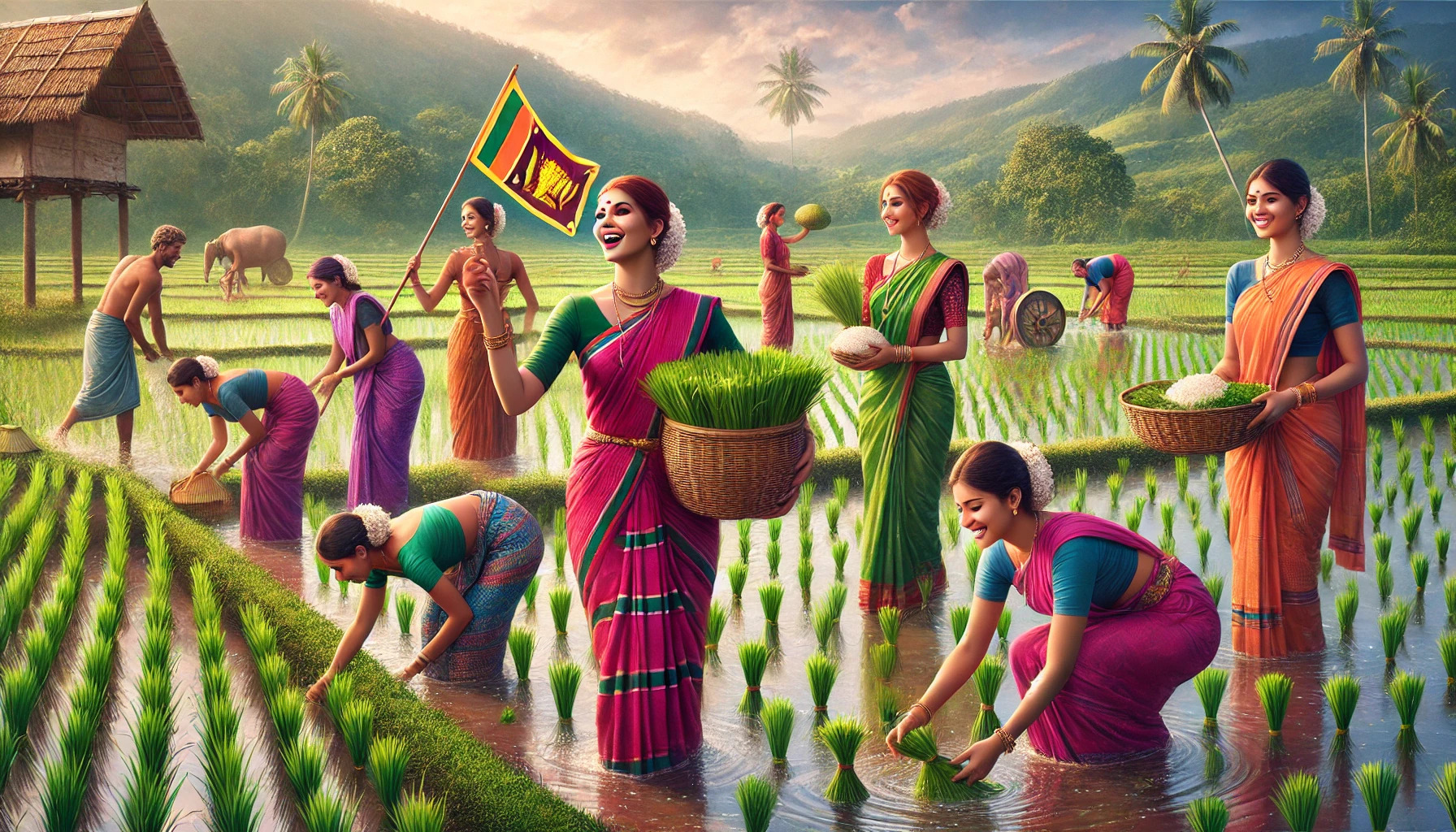The Role of Women in Sri Lankan Agriculture

Introduction
Sri Lankan agriculture has always been a cornerstone of the nation’s culture and economy. While it is often celebrated for its vibrant history and sustainable practices, the role of women in this sector has remained underappreciated. Women are the backbone of Sri Lanka’s agricultural landscape, contributing significantly to its growth and sustainability. This article aims to celebrate their contributions, highlight their challenges, and inspire support for their endeavors.
Women’s Role in Traditional Farming
- Ancient Contributions:
- In ancient Sri Lanka, women played pivotal roles in agricultural activities, especially in rice cultivation and spice farming.
- They were custodians of traditional farming knowledge, passing down techniques for seed selection, crop rotation, and pest control.
- Gender Roles in Farming:
- Women’s work in farming was seen as an extension of their domestic responsibilities, encompassing planting, weeding, and harvesting.
- These contributions were integral to maintaining the household and the community’s food supply.
- Cultural Practices:
- Many agricultural rituals and festivals, such as the Aluth Sahal Mangallaya (New Rice Festival), celebrated women’s involvement in farming.
Current Contributions of Women in Sri Lankan Agriculture
- Participation in Labor:
- Women make up nearly half of the agricultural labor force in Sri Lanka, working in both subsistence and commercial farming.
- Small-Scale Farming:
- Many women manage small-scale farms, growing vegetables, spices, and fruits for local markets.
- Their efforts are vital in promoting food security within rural communities.
- Leadership Roles:
- Women are taking up leadership positions in farming cooperatives and community-based organizations.
- They are advocating for sustainable practices and better working conditions.
- Organic Farming Pioneers:
- Women are at the forefront of Sri Lanka’s organic farming movement, focusing on environmentally friendly and health-conscious practices.
Challenges Faced by Women Farmers
- Limited Access to Resources:
- Many women lack access to land ownership, financial credit, and modern farming equipment.
- Education and Technology Barriers:
- Rural women often have limited opportunities for education and training in advanced agricultural techniques.
- Social Norms and Discrimination:
- Gender-based societal expectations restrict women’s ability to participate equally in decision-making processes.
- Impact of Climate Change:
- Unpredictable weather patterns and natural disasters disproportionately affect women farmers, who often rely on small-scale subsistence farming.
Women as Innovators in Sri Lankan Agriculture
- Adopting Modern Techniques:
- Women are learning and applying innovative methods such as drip irrigation, vertical farming, and integrated pest management.
- Success Stories:
- Female entrepreneurs are setting up agricultural enterprises, from spice exports to organic produce ventures.
- Example: A women-led farming collective in the Central Province successfully transitioned to fully organic tea production.
- Environmental Advocacy:
- Women are leading initiatives to combat soil erosion, reduce chemical use, and conserve biodiversity.
Programs and Policies Empowering Women Farmers
- Government Support:
- Policies promoting women’s access to credit and land rights are slowly gaining traction.
- Training programs by the Ministry of Agriculture focus on equipping women with modern farming skills.
- NGO Initiatives:
- Organizations such as Oxfam and CARE are working with women farmers to improve their livelihoods and empower them economically.
- Community-Based Programs:
- Local cooperatives and women’s groups are providing platforms for knowledge sharing and collective decision-making.
The Impact of Women in Agriculture on Society and Economy
- Food Security:
- Women’s involvement ensures a steady supply of nutritious food for their families and communities.
- Economic Growth:
- Female farmers contribute significantly to local economies by participating in markets and value-added agricultural products.
- Cultural Preservation:
- Women’s role in maintaining traditional farming practices safeguards Sri Lanka’s agricultural heritage.
How to Support Women in Agriculture
- Promote Gender Equality:
- Advocate for equal rights in land ownership and access to resources.
- Invest in Education and Training:
- Provide rural women with opportunities to learn about sustainable farming practices and modern techniques.
- Encourage Platforms for Marketing:
- Platforms like Vagaa.lk enable women farmers to reach wider markets and earn fair prices for their produce.
- Celebrate Women’s Achievements:
- Recognize and celebrate women’s contributions through events, awards, and media coverage.
Conclusion
Women are the unsung heroes of Sri Lanka’s agricultural sector, playing diverse roles from traditional knowledge keepers to modern innovators. By recognizing their contributions and addressing the challenges they face, we can build a more equitable and sustainable agricultural future. Let us celebrate the incredible women who cultivate our fields, nourish our communities, and preserve our agricultural heritage.
Visit Vagaa.lk to explore more inspiring stories and support women in agriculture. Together, we can make a difference! Vagaa.lk to make your dream farm a reality! produce and its role in shaping a healthier, sustainable world!
Facebook – https://www.facebook.com/vagaalk
Twitter – https://x.com/vagaalk
YouTube – https://www.youtube.com/@LK-CEO

